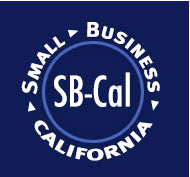I have worked with Dr. Bornstein on the issue regarding toxic small business loans as a result of decreased home values and the impact on small business credit. Please note that California is the epicenter of this problem. This article is in the American Banker website and additional information on Dr. Bornstein is listed below.
-------------------------------------------------------------------------------
Double-Whammy Hits Small Business Sector
By Kate Berry
August 18, 2011 1:56 pm EDT
The tepid demand for credit from small businesses may be more directly related to the mortgage boom and bust than it appears.
Obviously, the continued slump in the housing market is one reason for a weak economic recovery that has sapped overall demand for goods and services, and hence small businesses' growth prospects. But many business owners also took out toxic mortgages on their homes during the bubble years. Now in default or foreclosure, they cannot access credit just as their firms' sales are tanking
Now "the value of small businesses' collateral has gone down, often by substantial amounts," Dennis says. "You add to that weak sales, and it's dampened their enthusiasm to hire or expand."
Samuel D. Bornstein, an accounting professor at Kean University School of Business, has conducted surveys suggesting that over half of alternative-A mortgages in California alone went to small-business owners.
Such high exposure to bad home loans could delay the recovery of small business hiring — and of the rest of the economy — for years.
"There's an unrecognized link between small businesses, toxic mortgages and the housing crisis," says Bornstein, who has been studying small business failures since 2000.
"Small business owners are always looking to quench their need for cash and the mortgage companies were targeting them, letting them refinance into risky loans."
In 2008 and 2009, Bornstein conducted three surveys of small business owners. He found that they were eager to tap the equity in their homes to fund their operations, but then struggled when home prices dropped and access to credit shriveled.
According to Bornstein's surveys, 75% of toxic mortgages to small business owners were issued in the four states with high levels of foreclosure: California, Florida, Nevada and Arizona. In California alone, 52% of bad home loans went to small business owners.
Historically, small businesses that employ 1 to 20 people have been the first to recover from economic downturns, but that hasn't happened this time around.
In a study this year, the Federal Reserve Bank of New York found that jobs fell 10% from December 2007 to December 2009 at businesses with less than 50 employees, compared with a 7.5% decline in jobs at larger firms. That pattern was noticeably different from the 2001 recession, according to the New York Fed.
Now Bornstein and other industry experts are sounding an alarm about alternative-A mortgages that are resetting this year and next, saying those resets will disproportionately impact small business owners and, by extension, the overall economy.
Alt-A loans typically did not require any documentation of a borrower's income. Such loans allowed a borrower to make interest-only payments for between three to five years, and many contained "pay option" features in which the principal balance on the mortgage increases every month.
Though interest rates are at record lows, borrowers still face big increases in their monthly mortgage payments because the principal balances have gone up dramatically.
"Another wave of defaults looms on the horizon," Bornstein says.
Rick Sharga, a senior vice president at the data firm RealtyTrac Inc., has estimated that $200 billion of alt-A adjustable-rate mortgages will start resetting this year. Many of the properties have lost between 30% to 50% of their value, making it a near-certainty that some borrowers will stop making their mortgage payments because they owe far more on their loan than the home is now worth.
Many banks have long recognized the problems with alt-A loans: since 2009, Bank of America Corp. and JPMorgan Chase & Co. have been modifying such loans in record numbers.
But giving borrowers "interest-only modifications" is equally as unsustainable as the original "interest only" loans, because they simply put off foreclosures for another day.
The undocumented nature of most Alt-A loans makes it difficult to assess the full exposure of small businesses, but Bornstein's surveys have made him pessimistic about the resets' impact on the broader recovery.
"The financial distress of small businesses will have a multiplying effect on job losses and foreclosures," he says.
More articles at www.americanbanker.com
Samuel D. Bornstein
Professor of Accounting and Taxation
Kean University, School of Business, Union, NJ
Partner-Bornstein & Song, CPAs & Consultants, Oakhurst, NJ
bornsteinsong@aol.com
Tel: (732) 493 - 4799
Fax: (732) 493 - 3399
Subscribe to:
Post Comments (Atom)



1 comment:
Great post.
Highly recommended.
Post a Comment